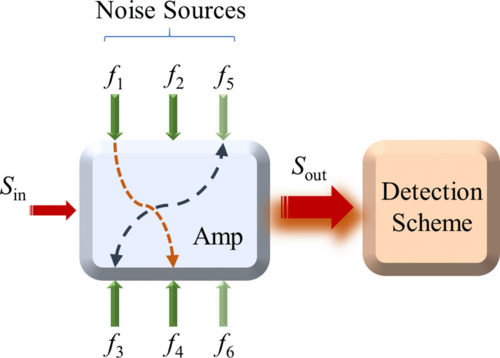
Non-universality of quantum noise in optical amplifiers operating at exceptional points
The concept of exceptional points-based optical amplifiers (EPOAs) has been recently proposed as a new paradigm for miniaturizing optical amplifiers while simultaneously enhancing their gain-bandwidth product. While the operation of this new family of amplifiers in the classical domain provides a clear advantage, their performance in the quantum domain has not yet been evaluated. Particularly, it is not clear how the quantum noise introduced by vacuum fluctuations will affect their operation. Here, we investigate this problem by considering three archetypal EPOAs structures that rely either on unidirectional coupling, parity-time (PT) symmetry, or particle-hole symmetry for implementing the exceptional point (EP). By using the Heisenberg-Langevin formalism, we calculate the added quantum noise in each of these devices and compare it with that of a quantum-limited amplifier scheme that does not involve any exceptional points. Our analysis reveals several interesting results: most notably that while the quantum noise of certain EPOAs can be comparable to those associated with conventional amplifier systems, in general the noise does not follow a universal scaling as a function of the exceptional point but rather varies from one implementation to another.